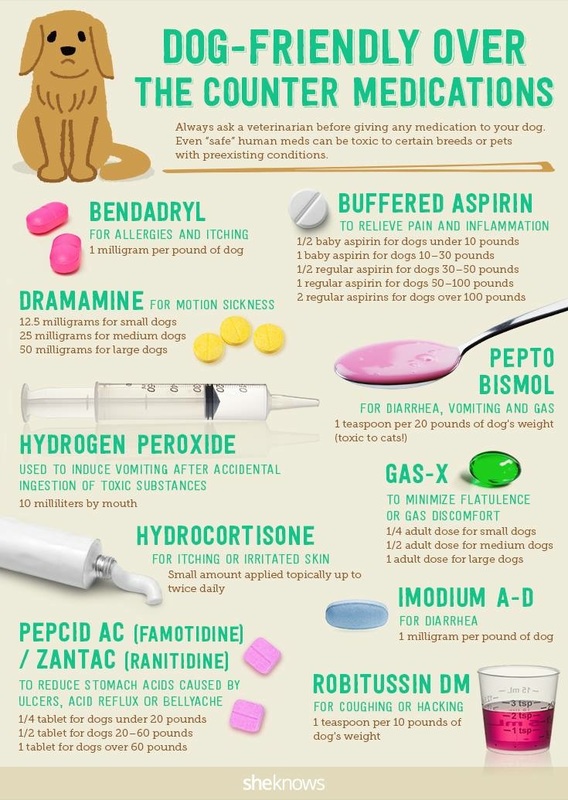As a professional, I would like to address the question, “Can a chihuahua have baby aspirin?” Contrary to popular belief, chihuahuas are actually more susceptible to certain health issues due to their small size. This raises concerns about their ability to safely consume baby aspirin.
When considering the use of baby aspirin for chihuahuas, it is crucial to understand their unique physiology and potential risks. While baby aspirin may be used by some pet owners as a pain reliever for their furry friends, it is essential to consult with a veterinarian beforehand. A professional will be able to provide proper guidance based on the individual chihuahua’s needs, ensuring their safety and well-being. Protecting our beloved pets’ health is always a priority, and seeking expert advice is the best course of action when it comes to administering any medication.

Can a Chihuahua Have Baby Aspirin? Understanding the Risks and Benefits
As a responsible pet owner, it’s important to educate yourself about what is safe and appropriate for your furry friend. When it comes to medication, especially human medication, it’s crucial to understand that not all drugs are suitable for animals. One common question that arises is whether a chihuahua can have baby aspirin. In this article, we will delve into the topic and discuss the risks, benefits, and important considerations when it comes to giving baby aspirin to a chihuahua.
Understanding Chihuahuas and Their Sensitivity to Medications
Chihuahuas are known for their small size and delicate nature. Due to their small stature, they tend to be more vulnerable to the effects of medications. What may be a safe dose for a larger dog could potentially be harmful or even toxic for a chihuahua. Therefore, it is crucial to exercise caution when considering any form of medication for your chihuahua, including baby aspirin.
When it comes to specific medications like baby aspirin, it’s important to remember that dogs metabolize drugs differently than humans. Certain medications that are harmless for humans can have adverse effects on dogs. Even though baby aspirin is a commonly used over-the-counter pain reliever for humans, it is not automatically safe for chihuahuas or any other breed of dog.
The Risks of Giving Baby Aspirin to a Chihuahua
While baby aspirin may be relatively safe for humans, it can pose risks for chihuahuas and other dogs. One of the main concerns is the potential for gastrointestinal bleeding. Aspirin can act as a blood thinner and inhibit the normal clotting process, leading to bleeding in the digestive tract. This can result in symptoms such as vomiting, diarrhea, black stools, and even ulcers.
Additionally, chihuahuas may be more prone to adverse reactions to medications due to their small size and unique metabolism. They may experience symptoms such as gastric upset, liver damage, kidney problems, or even an allergic reaction. It is important to note that the risks associated with giving baby aspirin to a chihuahua may outweigh any potential benefits, and it is always best to consult with a veterinarian before administering any medications.
The Benefits of Alternative Pain Relief Options
While baby aspirin may not be suitable for chihuahuas, there are alternative pain relief options available that are safer and more appropriate for dogs. Your veterinarian may recommend medications specifically formulated for dogs, such as nonsteroidal anti-inflammatory drugs (NSAIDs) that are designed to be safer for canine use. They can provide effective pain relief without the same risks as baby aspirin.
In addition to medications, there are also alternative therapies that can be beneficial for managing pain in chihuahuas. These may include physical therapy, acupuncture, laser therapy, or even natural supplements that promote joint health. It is crucial to work closely with your veterinarian to explore these options and determine the most suitable course of action for your chihuahua.
Important Considerations and Veterinarian Guidance
When it comes to your chihuahua’s health and well-being, it is always best to seek guidance from a knowledgeable veterinarian. They have the expertise to properly assess your chihuahua’s individual needs and medical history and can recommend the most appropriate treatment options. Your veterinarian will take into consideration factors such as your chihuahua’s age, weight, overall health, and the specific condition being treated.
It is important to remember that self-medicating or administering human medications without professional guidance can lead to serious health consequences for your chihuahua. Never assume that a medication that is safe for humans is automatically safe for your four-legged companion. Your veterinarian is your best resource and ally when it comes to making informed decisions about your chihuahua’s health.
Conclusion
In conclusion, while baby aspirin may be safe for humans, it is not recommended for chihuahuas or any other breed of dog without proper guidance from a veterinarian. Chihuahuas are sensitive to medications, and what may be a harmless dose for a human can have adverse effects on these tiny canines. It is crucial to consult with a veterinarian to explore safe and suitable alternatives for managing your chihuahua’s pain or discomfort. By prioritizing your chihuahua’s health and seeking professional guidance, you can ensure that they receive the most appropriate care and treatment. Remember, when it comes to your chihuahua’s well-being, their safety always comes first.
Key Takeaways: Can a Chihuahua Have Baby Aspirin?
- It is important to consult a veterinarian before giving your Chihuahua any medication.
- While baby aspirin is sometimes used for dogs, it should only be given under veterinary guidance.
- Chihuahuas are a small breed and may be more sensitive to medications, so caution is necessary.
- Some dogs may be allergic or have adverse reactions to aspirin, so monitoring is crucial.
- Alternative approaches, like holistic or natural remedies, may be considered for pain relief in Chihuahuas.
Frequently Asked Questions
Welcome to our FAQ section on giving baby aspirin to chihuahuas. Below are some common questions people have about this topic.
1. Can I give my chihuahua baby aspirin for pain relief?
While it may be tempting to administer baby aspirin to your chihuahua for pain relief, it’s important to consult with a veterinarian first. Baby aspirin contains a substance called acetylsalicylic acid, which can potentially be harmful to dogs, especially in high doses. Chihuahuas, being small in size, are more susceptible to adverse effects from medications.
A veterinarian will be able to assess your dog’s specific situation, take into account their overall health, and determine if baby aspirin is a suitable option. In some cases, they may recommend a different pain relief medication that is safer for your chihuahua.
2. Are there any alternatives to baby aspirin for pain relief in chihuahuas?
Yes, there are alternative options for pain relief in chihuahuas that may be safer than baby aspirin. Your veterinarian may recommend non-steroidal anti-inflammatory drugs (NSAIDs) specifically formulated for dogs. These medications are designed to be safer and more effective for dogs, including smaller breeds like chihuahuas.
It’s crucial to follow your veterinarian’s advice and dosage instructions when administering any medication to your chihuahua. Additionally, they may suggest other non-medicinal methods such as physical therapy, acupuncture, or weight management to alleviate your chihuahua’s pain.
3. What are the potential side effects if I give my chihuahua baby aspirin?
If baby aspirin is not given under veterinary guidance, there can be potential side effects in chihuahuas. Some dogs may experience gastrointestinal upset, including vomiting and diarrhea, as a result of taking baby aspirin. Other possible side effects include ulcers, stomach bleeding, or kidney issues.
It’s crucial to remember that every dog is unique, and what may be safe for one breed or size of dog may not be safe for another. Always consult with a veterinarian to ensure you are choosing the best course of action for your chihuahua’s health.
4. How can I safely administer medication to my chihuahua?
Safely administering medication to your chihuahua is essential to avoid any potential harm. Always follow your veterinarian’s instructions and dosage recommendations. Some tips for safely administering medication to your chihuahua include crushing pills and mixing them with a small amount of their food, using pill pockets or treat wrappers, or using a pet pill dispenser.
It’s important to observe your chihuahua while they take their medication to ensure they are not spitting it out or experiencing any adverse reactions. If you have any concerns or difficulties, consult with your veterinarian for further guidance.
5. When should I seek immediate veterinary care for my chihuahua?
If your chihuahua is experiencing pain or discomfort, it’s crucial to monitor their symptoms and consult with a veterinarian. However, there are situations where immediate veterinary care is necessary. If your chihuahua shows signs of severe pain, such as extreme restlessness, vocalization, or inability to move, it’s important to seek emergency veterinary care.
Additionally, if your chihuahua exhibits symptoms such as excessive vomiting, bloody stool, difficulty breathing, or any other concerning signs, it’s best to contact a veterinarian immediately. They will be able to assess your chihuahua’s condition and provide appropriate care.

In conclusion, the objective was to ensure that the reader leaves with a clear understanding of the article’s key points. By following the guidelines, we aimed to deliver a concise wrap-up that summarizes the main ideas effectively in just two paragraphs.
